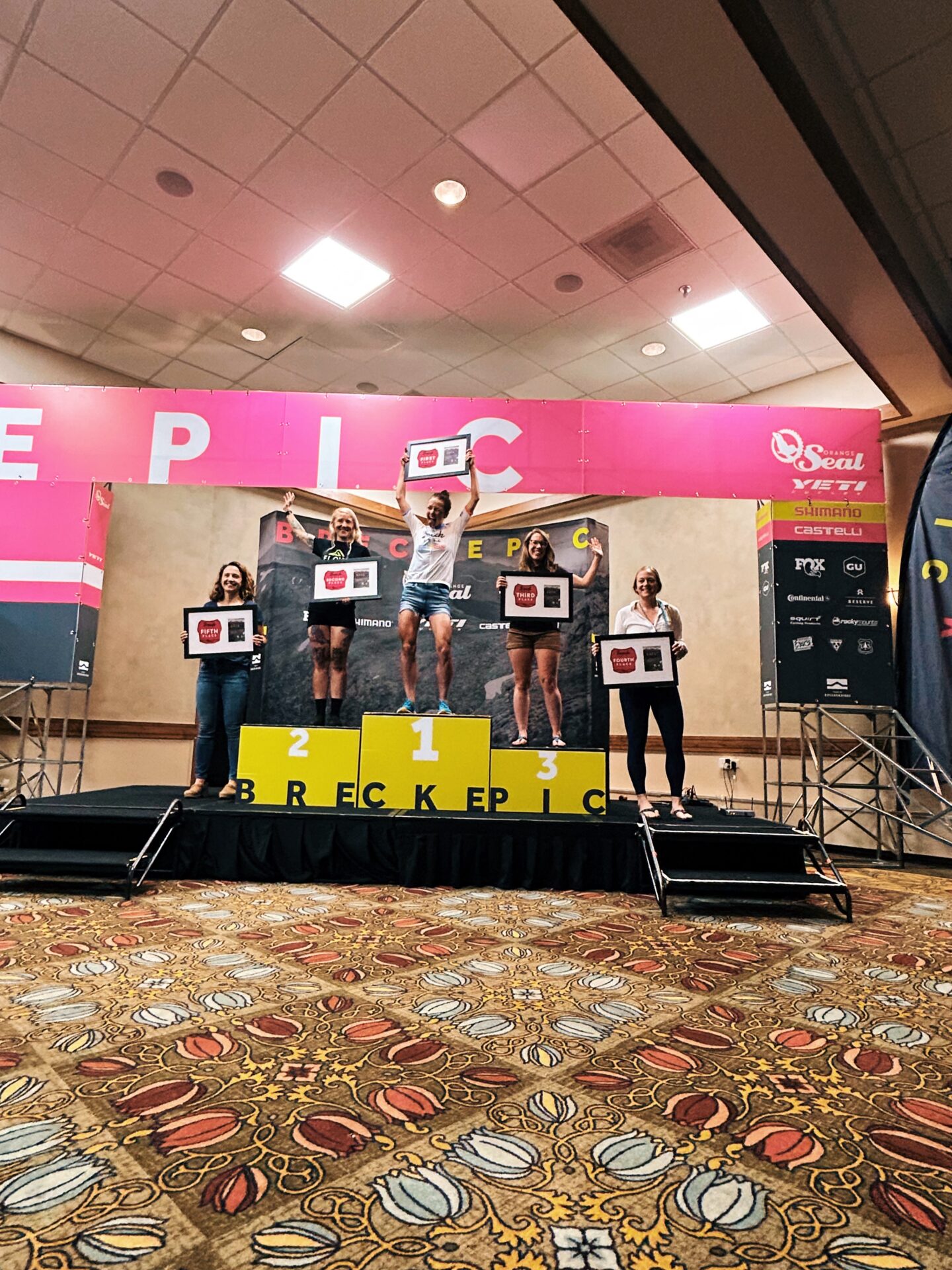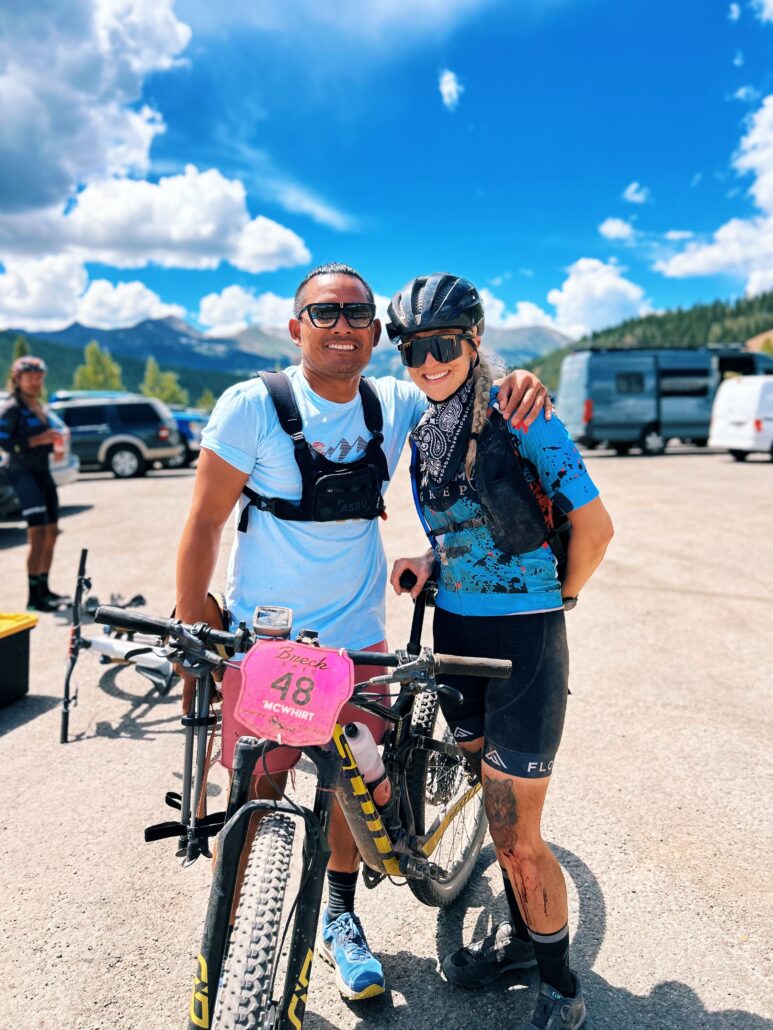
I couldn’t have done this race without Jackky’s support.
He did everything I didn’t have the energy to do and it helped tremendously. He’d hand me drinks and gels at the aid stations so I didn’t have to go through my bag. Jackky had my recovery shake ready when I crossed the finish line. He cleaned my bike and took it to the mechanics while I showered. Jackky made me meals while I soaked in the bath. He’d refill my bottles and gels when I ate. He washed my kits as I got ready for bed. I don’t know how others did all of this and raced the next day.
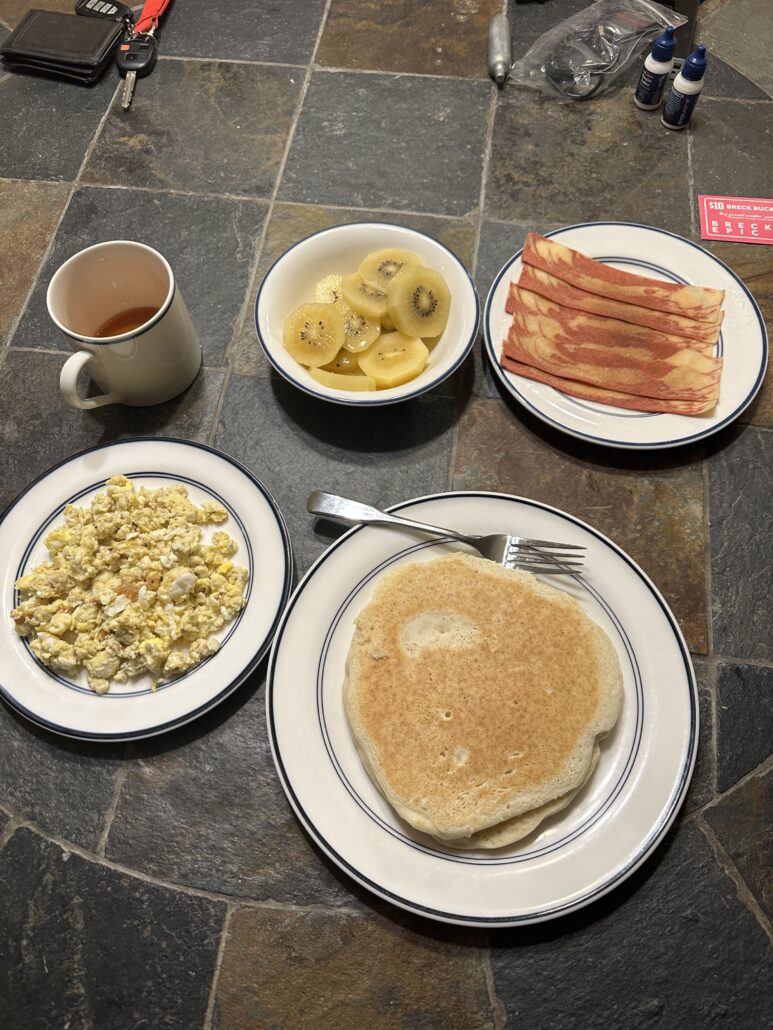
I never expected to lose my appetite after each race.
I assumed I’d be ravenous after every race because I’d be racing 4+ hours but I wasn’t hungry. I mostly felt nauseous. Jackky had to continually convince me to eat. I had to force myself to finish the meals he made, knowing it’d help me recover for the next day’s race.
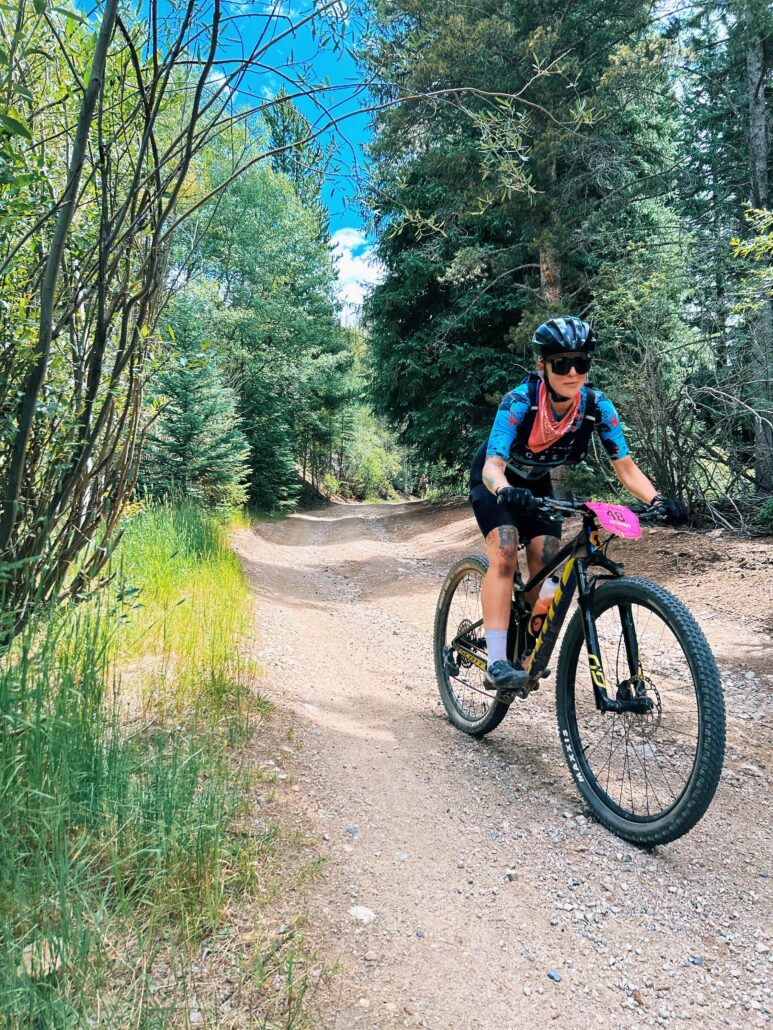
I thought I trained enough for the race and I still felt unprepared.
I’m not sure if anything can truly prepare you for the Breck Epic. A month before the race, I was riding 6 days a week, but I only had so much free time to dedicate to training. If I were to redo it, I’d do longer trainings at tempo with harder, shorter efforts thrown in. I did A TON of endurance training but I needed more work in tempo day after day to account for the race conditions.
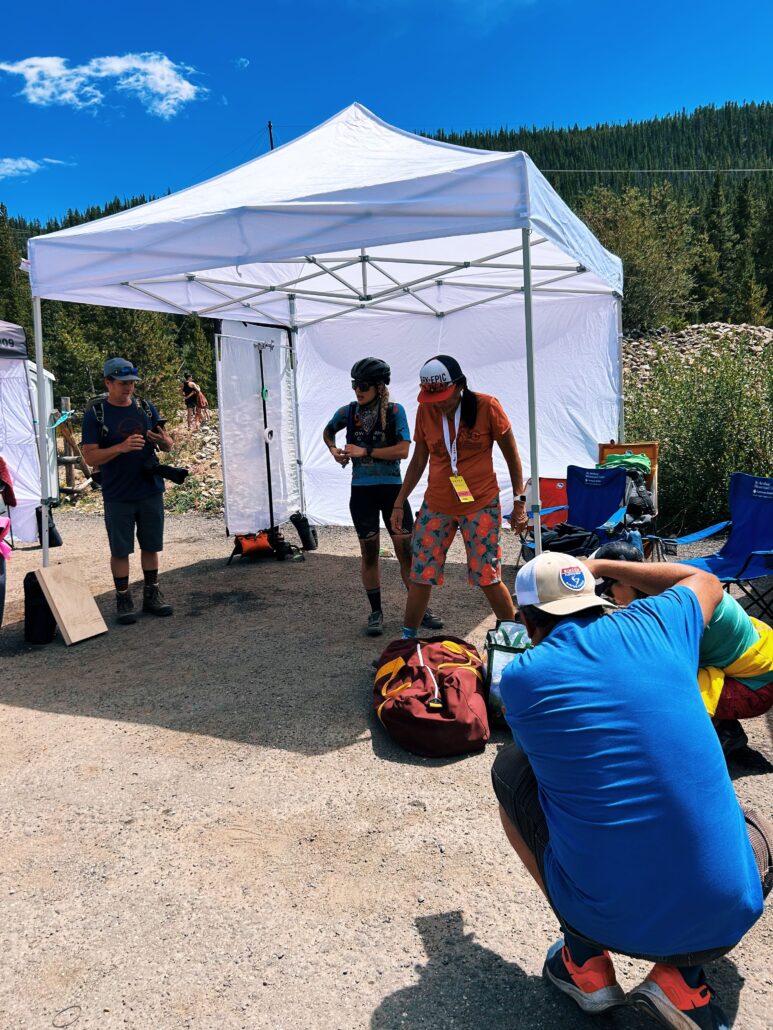
I didn’t actually get much downtime.
I brought my laptop, a book, and a notepad thinking I’d have plenty of time to rest and chill. I’d usually cross the finish line between 1–2 PM. I’d drink my recovery shake and then bike back to the hotel room. I’d shower then soak in an epsom salt bath and didn’t start eating until 3–3:30ish and it’d take an hour to get it all down. The mandatory rider meetings were from 5–6 PM and then I’d eat dinner until 7ish. We’d prep stuff for the next day, then Jackky would give me an hour-long massage. Then we’d try to go to sleep. I never picked up the book or notepad and when I tried to watch something on my laptop once, it didn’t work.
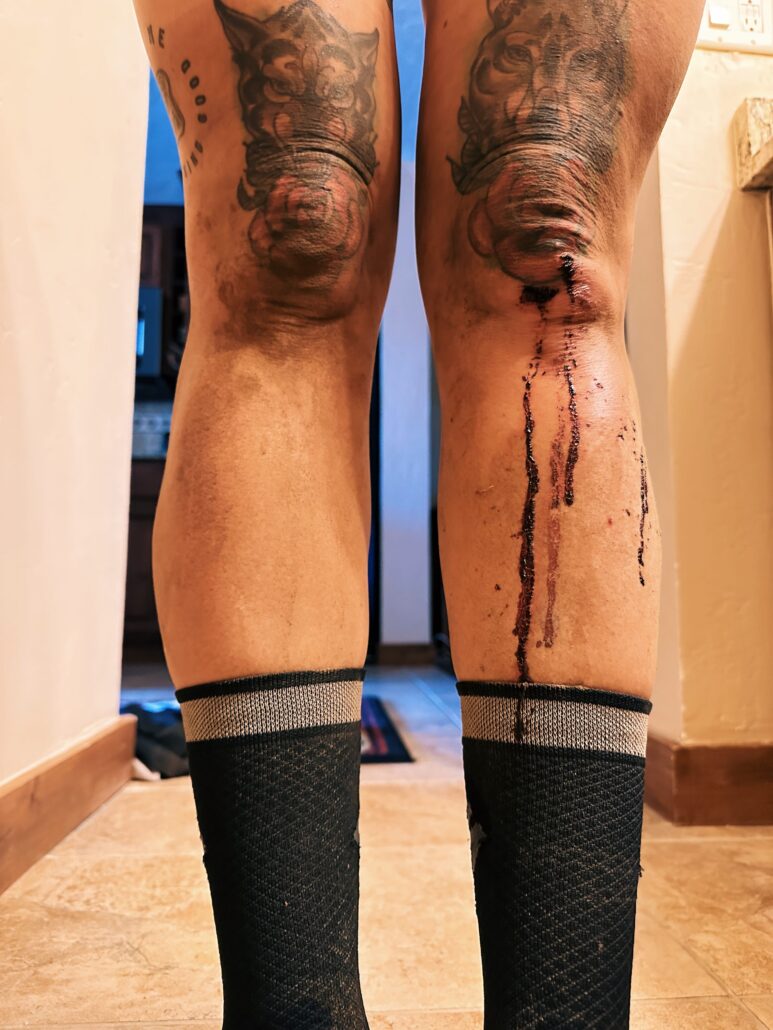
Your mental toughness needs to be dialed.
I was in my head so fuggin’ much that if I had any negative self talk, I would have quit. You become so physically drained that you end up relying on your mentals to get you to the next day. Hell, to the next mile. So often I found myself saying, “Just get to the top of this climb,” “You’re only job today is to pedal to the finish line,” “You’ve trained your ass off for this, don’t give up now,” “If you slow down now, they’ll catch you, and you’ll never forgive yourself for it,” and my favorite: “You are a tough fucking bitch who will always survive because you do what you need.” You rarely have someone encouraging you along the way so you need to rely on yourself to get you to the finish line. And most days felt nearly impossible, especially stages 2, 3, and 4 when shit hit the fan. Not only did I have to contend with physical exhaustion but setbacks and crashes, which pushed my mentals to the limit.
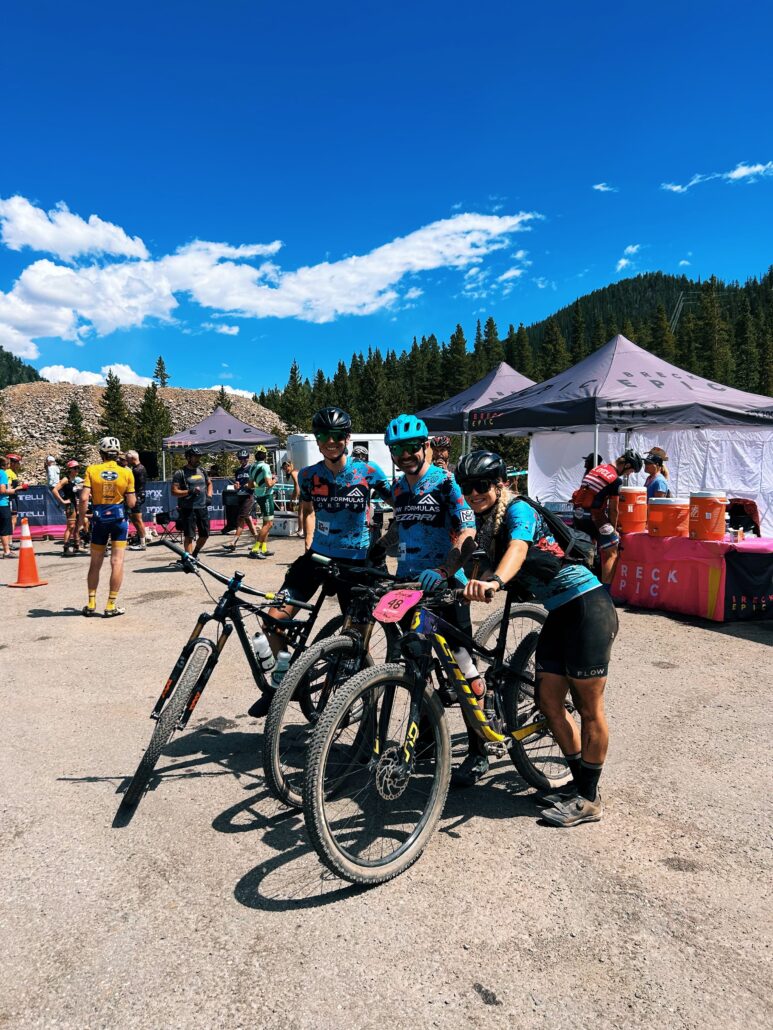
Emotional support from friends and family motivated me throughout the stage race.
Every morning, my mother, father, and Brittney texted me with encouraging words and it meant so much to me. Every morning I woke up feeling like dog shit (tired, achy, and nauseous) and to know someone believed in me helped me throw my bibs on and get back on the bike. Having Jackky (every day), my mom, sister, Brittney, Hannah, Vince, and Melanie come up to watch and cheer for me boosted my morale before, during, and after the race; the No Ride Around crew, Jamie, Paul, & Dustin kept me laughing and smiling and most importantly, pedaling.
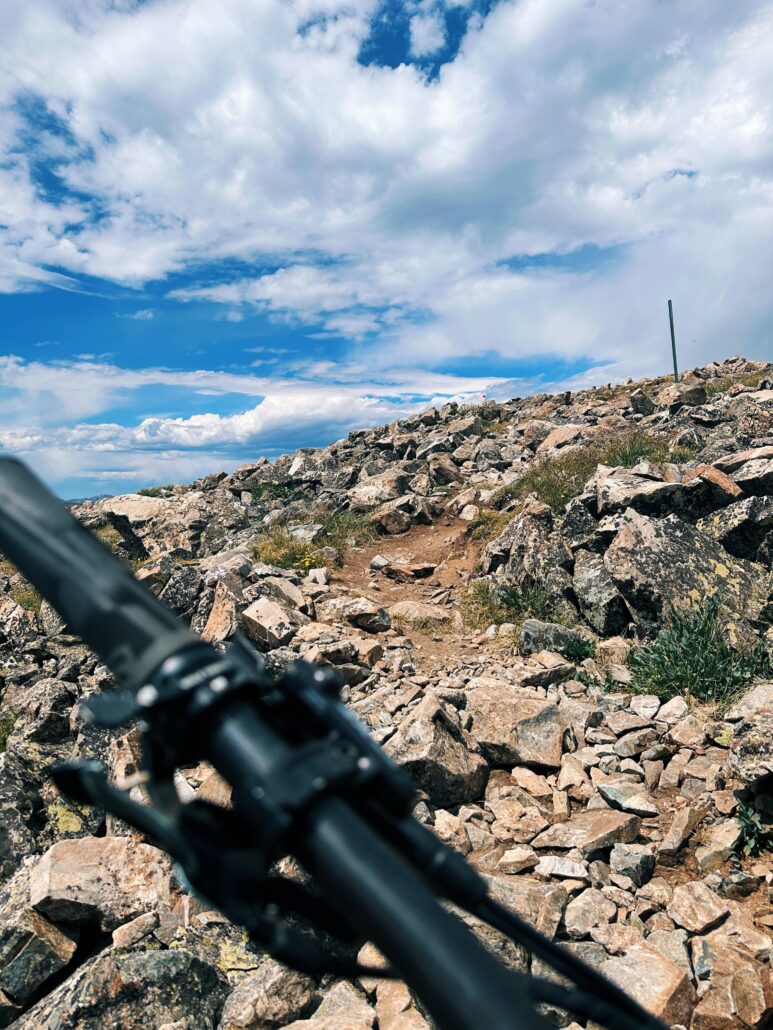
Previewing the courses was essential and made a big difference during the race.
I’m a course previewer. It makes me feel better to see what I’ll be racing before the race and I’m so glad Jackky joined me on all six stages. I realized there was way more hiking than I expected and Jackky got me some trail shoes so I could hike easier but also clip in and I used them on stages 3, 4, and 5 and it made a world of difference. It also helped knowing where all the climbs and descents were. If you have the ability to preview the routes, do it.
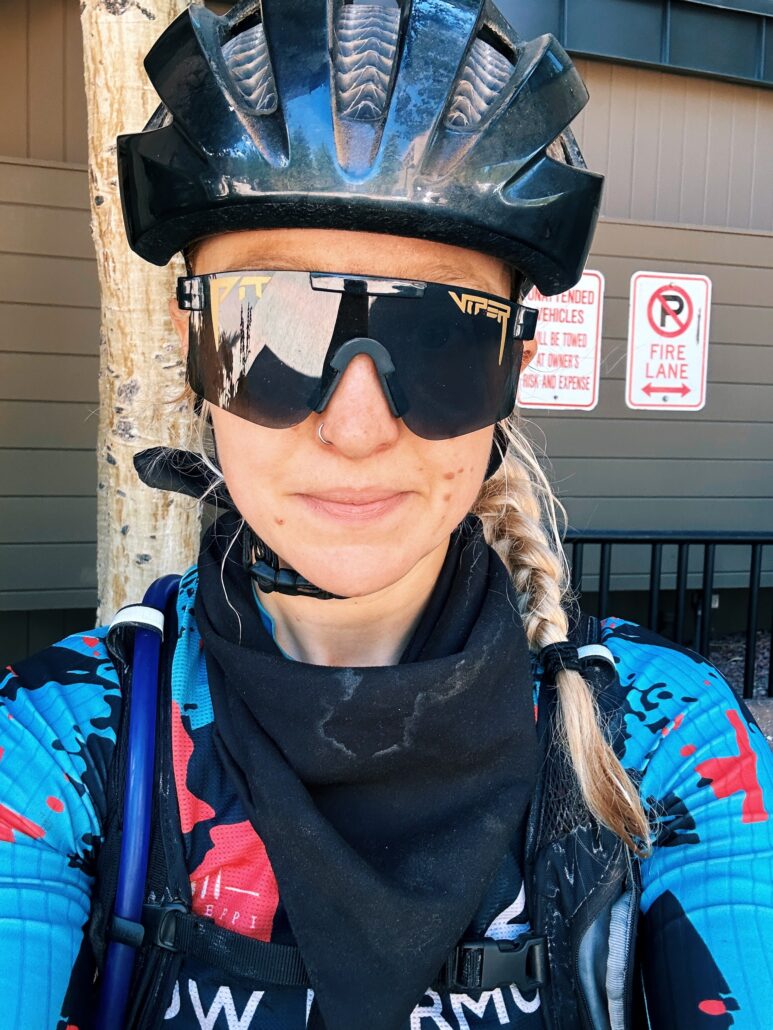
It’s challenging to stay hydrated during the race.
Between the pedaling, bike handling, and the heavy breathing, I struggled to drink. I usually came back with water still in my CamelPak, which wasn’t good. I even made a conscious effort to drink as often as I could but I was breathing so hard that I felt like to get a good gulp I’d have to slow down, which rarely happened. I’m glad I had my CamelPak though because trying to manage a water bottle on a lot of the climbs and descents would have been that much harder. I think I’d practice this more during training and getting used to drinking while trying to breathe and maneuver over rocks and roots.
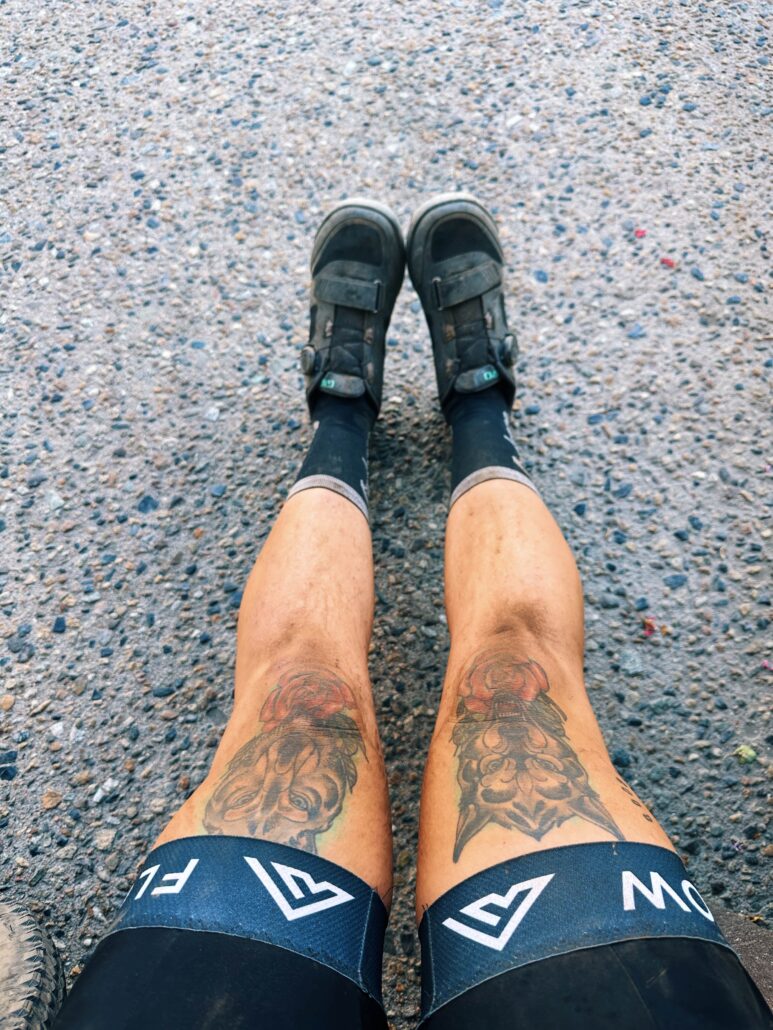
I never thought I’d have to overcome the things that happened to me.
My biggest concern was getting saddle sores because of how long I’d be on the bike, so much so that I went to the dermatologist the week before the race to get a steroid shot into an existing one to make sure it didn’t blow back up. Instead, I ran over a nail on Stage 2 and crashed pretty bad on Stage 3, then crashed really bad on Stage 4. I didn’t bring many bandaids with me but I sure had everything to treat a saddle sore that never formed. That’s all to say that things will happen unexpectedly and you can’t plan for it all (but definitely being first aid supplies and extra tires).
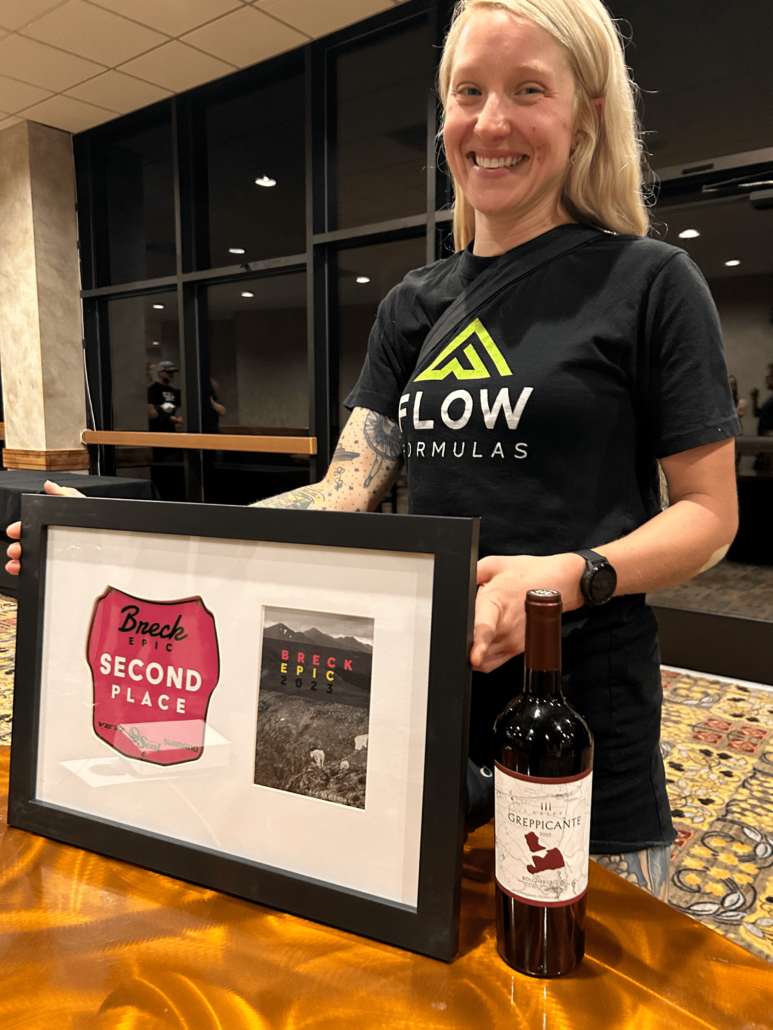
This was an investment of time, money, and energy.
When I originally signed up for The Breck Epic last December I sort of knew what I was getting myself into. I ended up training 453 hours, 30 minutes, and 40 seconds to prepare for this race. I spent around $4,000 in accommodation, nutrition, travel, bike maintenance, etc. for this race. I never thought it would get this expensive but I promised myself that if I was going to train for this, I was going to go all in. I do feel like the Tiger King: “I’m never going to financially recover from this.”
